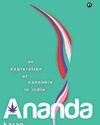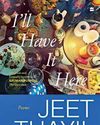
I recently read that a new high-speed train route had opened in Laos at the end of 2021. The Lao–China Railway can get you the 150 kilometres from the ancient capital of Luang Prabang north to the Chinese border in just 90 minutes. It carries more than 1.5 million passengers a year, a game-changer for a country with very little transportation infrastructure.
As someone who has visited this remote corner of Laos, I wondered: What fun is that sort of speed when you can take three days to do pretty much the same trip by boat—never knowing if you’ll actually get there?
It was the sprIng of 2017, and my husband, Jules, and I had just spent two weeks travelling around Laos. We had poked around the humid, sprawling capital, Vientiane, in the south and explored the fascinating Plain of Jars in the middle of the country. We were really enjoying it—the people were kind, and it wasn’t as touristy as we knew Vietnam, the country we planned to visit next, would be.
We saved Luang Prabang, Laos’s historic former capital, for last. Located at the confluence of the Mekong and the Nham Khan rivers, the UNESCO World Heritage Site was quiet, with several gilded Buddhist monasteries.
Its well-preserved French colonial buildings date back to the first half of the 20th century, when Laos was part of French Indochina.
We strolled the peaceful back streets and colourful craft markets and climbed Phousi Hill to take in the view. Relaxing at a bistro across from a wat (Buddhist temple), we watched saffron-robed monks stroll by as we enjoyed coffee and croissants, another vestige of France’s colonial regime. At a bamboo-stilted riverfront café we ate traditional Lao larb—spicy ground pork or chicken mixed with fresh seasonings—served with the refreshing local brew, the rice-based Beerlao.
Esta historia es de la edición June 2024 de Reader's Digest India.
Comience su prueba gratuita de Magzter GOLD de 7 días para acceder a miles de historias premium seleccionadas y a más de 9,000 revistas y periódicos.
Ya eres suscriptor ? Conectar
Esta historia es de la edición June 2024 de Reader's Digest India.
Comience su prueba gratuita de Magzter GOLD de 7 días para acceder a miles de historias premium seleccionadas y a más de 9,000 revistas y periódicos.
Ya eres suscriptor? Conectar

ME & MY SHELF
Siddharth Kapila is a lawyer turned writer whose writing has focussed on issues surrounding Hinduism. His debut book, Tripping Down the Ganga: A Son's Exploration of Faith (Speaking Tiger) traces his seven-year-long journey along India's holiest river and his explorations into the nature of faith among believers and skeptics alike.

EMBEDDED FROM NPR
For all its flaws and shortcomings, some of which have come under the spotlight in recent years, NPR makes some of the best hardcore journalistic podcasts ever.

ANURAG MINUS VERMA PODCAST
Interview podcasts live and die not just on the strengths of the interviewer but also the range of participating guests.

WE'RE NOT KIDDING WITH MEHDI & FRIENDS
Since his exit from MSNBC, star anchor and journalist Mehdi Hasan has gone on to found Zeteo, an all-new media startup focussing on both news and analysis.

Ananda: An Exploration of Cannabis in India by Karan Madhok (Aleph)
Karan Madhok's Ananda is a lively, three-dimensional exploration of India's past and present relationship with cannabis.

I'll Have it Here: Poems by Jeet Thayil, (Fourth Estate)
For over three decades now, Jeet Thayil has been one of India's pre-eminent Englishlanguage poets.

Orbital by Samantha Harvey (Penguin Random House India)
Samantha Harvey became the latest winner of the Booker Prize last month for Orbital, a short, sharp shock of a novel about a group of astronauts aboard the International Space Station for a long-term mission.

She Defied All the Odds
When doctors told the McCoombes that spina bifida would severely limit their daughter's life, they refused to listen. So did the little girl

DO YOU DARE?
Two Danish businesswomen want us to start eating insects. It's good for the environment, but can consumers get over the yuck factor?

Searching for Santa Claus
Santa lives at the North Pole, right? Don't say that to the people of Rovaniemi in northern Finland